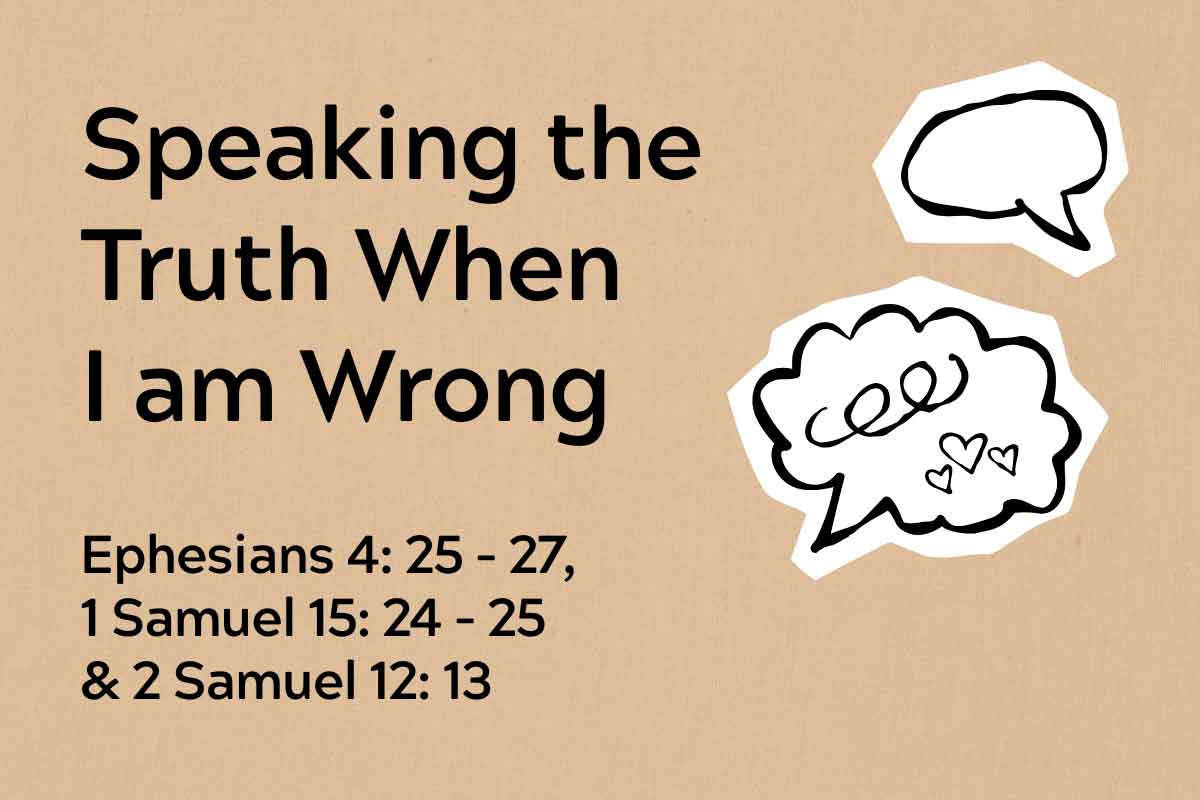Questions
For Personal Reflection or Group Discussion
- How easy or difficult do you find it to admit when you are wrong or have done something wrong? Why?
- Read the story of David in 2 Samuel 11 – 12. Why did God not relent on meting a punishment for David’s sin although God had forgiven (“put away”) David’s sin (2 Samuel 12: 13 – 14)? What does this story tell you about God and what forgiveness means?
- Which of these aspects do you need to include if there is an occasion that you need to confess a wrong that you did to someone?
- Admit our fault without excuse or qualifications. (Psalm 51: 4; Luke 15: 21)
- Make restitution where possible. (Exodus 22: 1 – 15; Luke 19: 1 – 10)
- Commit to not repeating the offense. (Matthew 5: 29 – 30; 1 John 3: 9)
- Ask and wait for forgiveness – not dictate/demand it. (Luke 15: 18 – 19)
[Exercise: Memorise or familiarise yourself with Psalm 51. It is a psalm of confession of David after the prophet Nathan confronted him with his sin. Familiarising yourself with this psalm will help you to grow in your trust in God’s mercy and your willingness and ability to confess your sins to God and in turn to those whom you may offend.]
Sermon
Preacher: Rev Poh Zhi-Hui
Topic: Speaking the Truth When I am Wrong
Verses: Ephesians 4: 25 – 27, 1 Samuel 15: 24 – 25 & 2 Samuel 12: 13


